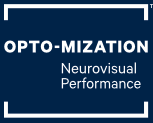Still struggling with post concussion symptoms? Are you sensitive to screens? Do you get headaches throughout the day? Are you having trouble concentrating on reading or work emails? Do you still have a sense of fogginess? Does your dizziness or nausea still come on worse than before?
Sometimes you may have noticed that something feels ‘off’ about you vision. Although many people don’t always equate these symptoms with their vision. Either way, experts will recommend that you have your eyes tested, just to make sure. But have they really tested for what is causing your problems?
Post Concussion Syndrome type symptoms are not caused by the typical things tested for in an eye test (clarity and eye health). Rather, they are caused by injury to the brain that results in problems with how the eyes move, work together, and how the brain integrates that information. Too often the eye testing done by your optometrist or ophthalmologist will stop at the clarity and eye health and give you a clean bill of visual health.
What needs to tested for?
How your eyes work together: Testing should include a full workup on how well your eyes actually work together. This is looking for problems like binocular dysfunction, convergence insufficiency, or others.
How accurately your eyes track: This can be done via computer assisted software, or with standardized tracking plates. A simple ‘follow my pen’ test is not sensitive enough to pick up tracking problems.
How your vision relates to balance: Testing can be done to see if your vision is helping or hindering your balance. This often utilizes different prescriptions and balancing procedures. The idea is to ensure that your brain is processing depth and space accurately, and to see if lenses can be used to assist this. When your vision is not integrating well, it is called a visual-vestibular mismatch. These problems are also commonly misdiagnosed as vestibular migraines. Watch below to see the difference. He had been through more than two years of various other therapies to try to help.
Conclusion:
When testing vision after concussion it’s not enough to rely on routine testing done in optometry or ophthalmology. You need to seek out an optometrist who practices in the area of neuro-optometry and vision therapy. Optometrists can be found through covd.org and visiontherapycanada.com
